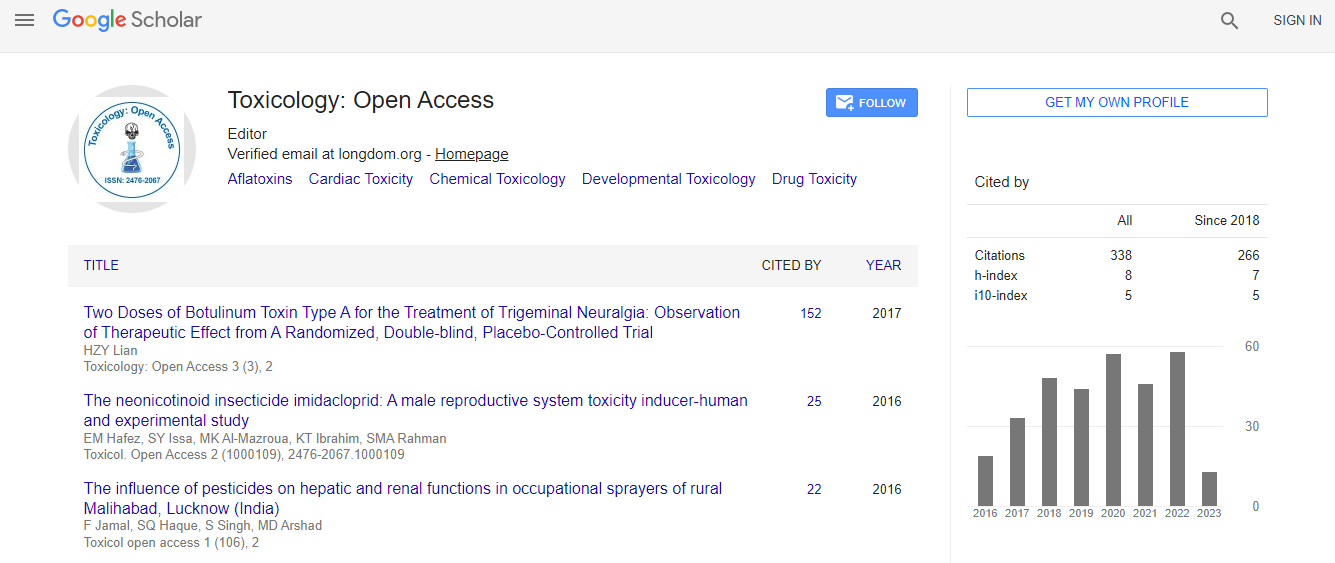Research Article
Sodium Bicarbonate and N-Acetyl Cysteine in Treatment of Organophosphorus Poisoning Cases: A Randomized Controlled Clinical Trial
Shimaa M Motawei1* and Azza A. Elbiomy2
1Department of Forensic Medicine and Clinical Toxicology, Faculty of Medicine, Mansoura University, Egypt
2Department of Clinical Pathology, Faculty of Medicine, Mansoura University, Egypt
- *Corresponding Author:
- Dr. Shimaa M Motawei
Department of Forensic Medicine and Clinical Toxicology
Faculty of Medicine, Mansoura University, Egypt
Tel: +201000371165
E-mail: Shimaa_motawei@yahoo.com
Received Date: December 07, 2016; Accepted Date: February 10, 2017; Published Date: February 14, 2017
Citation: Motawei SM, Elbiomy AA (2017) Sodium Bicarbonate and N-Acetyl Cysteine in Treatment of Organophosphorus Poisoning Cases: A Randomized Controlled Clinical Trial. Toxicol Open Access 3:123. doi:10.4172/2476-2067.1000123
Copyright: © 2017 Motawei SM, et al. This is an open-access article distributed under the terms of the Creative Commons Attribution License, which permits unrestricted use, distribution, and reproduction in any medium, provided the original author and source are credited.
Abstract
Introduction: Organophosphorus poisoning (OPP) is an important health problem in many parts of the world particularly in developing countries. However, the treatment did not change since many years, despite the increasing complications and case fatalities of the exposure. From the clinical experience, some pharmacologic agents had proved useful in improving the outcome and decreasing the complications of this exposure.
Aim: This study was conducted to test the efficacy of N-acetyl cysteine; the famous antioxidant, and of blood alkalization by sodium bicarbonate in improving the outcome of OPP cases.
Methods: Seventy patients of OPP were given N-acetylcysteine (NAC) and NaHCO3 together with classic treatment of OPP. Serum Malondialdehyde (MDA), Glutathione peroxidase (GPx), pH, plasma butyrylcholinesterase were measured and compared of a matched group of patients, who received classic treatment only, on presentation and after 24 hours of classic treatment only.
Results: There were no significant differences between the two groups of study in initial levels of MDA, GPx, pH, plasma butyrylcholinesterase that turned highly significant after 24 h of treatment and observation. There was a highly significant difference (P=0.001) in length of hospital stay (LOS) between the two groups. No adverse effects for the supplements were observed.
Conclusion: NAC and sodium bicarbonate are affordable agents and are very helpful in improving the outcome in OPP and decreasing LOS.

 Spanish
Spanish  Chinese
Chinese  Russian
Russian  German
German  French
French  Japanese
Japanese  Portuguese
Portuguese  Hindi
Hindi 